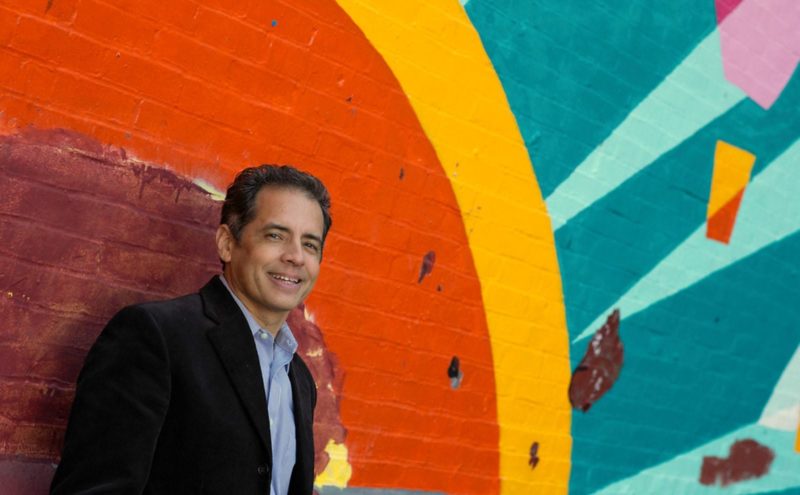Robert Rivera-Amezola describes one of his earliest mentors as a “quiet leader,” a person who “called little attention to themselves,” but who led an “extraordinarily impactful life.” Given this is how he described what he admires in a mentor, it’s no surprise that this is a perfect description of Robert himself. As a teacher-leader, Robert has been impactful in many ways, but perhaps most notable is his passion and focus on social justice.
Robert’s interest in social justice started with his involvement with the Philadelphia Writing Project (PhilWP) when he participated in an Invitational Summer Institute in 2005. Robert was struck by PhilWP’s focus on social justice and educational equity, and it was the first time he made the connection between social justice and teaching. From there his focus on social justice and inequities increased over time as he engaged in continual reflection and reading.

Now, in his role as a digital literacy teacher working with students from a variety of backgrounds in a diverse part of Philadelphia, Robert brings his passion for social justice into his classroom on a daily basis. His belief in all young people and their potential is clear when you hear him talk about his students. “If given the chance to articulate in ways that go beyond just English or traditional school writing, if given that chance, they reveal their brilliance,” he says. In his digital literacy classroom he sees that brilliance regularly and is amazed at what the kids are able to accomplish when they are given the space and time to be themselves and create.
Another way he honors his students is through his Family and Community Stories project where young people and their families tell their stories in whatever language they feel most comfortable with. He hosts it in a digital space so that it can be shared publicly. “I think it’s a perspective they have in life that we don’t get to hear about, and that I’d like to make more public.”
Robert also brings his focus on social justice and inequities to his work as a leadership team member for NWP’s College, Career, and Community Writers Program (C3WP). The program focuses on source-based argument writing, but ultimately seeks to support young people in writing about issues that matter to them and their communities.
Robert feels the National Writing Project had a hand in developing him as a leader, noting NWP’s practice of reaching out and inviting people in. “I am now the mentor for some people, when I was always the one searching for them.”

